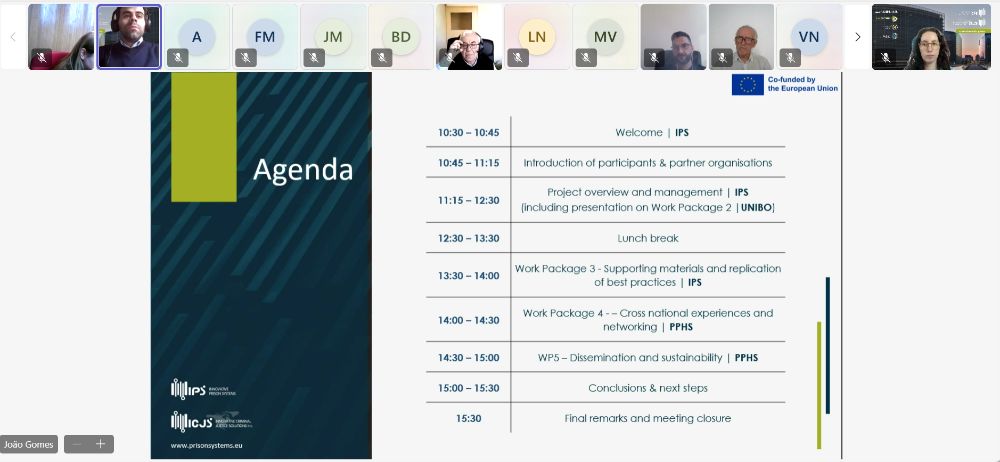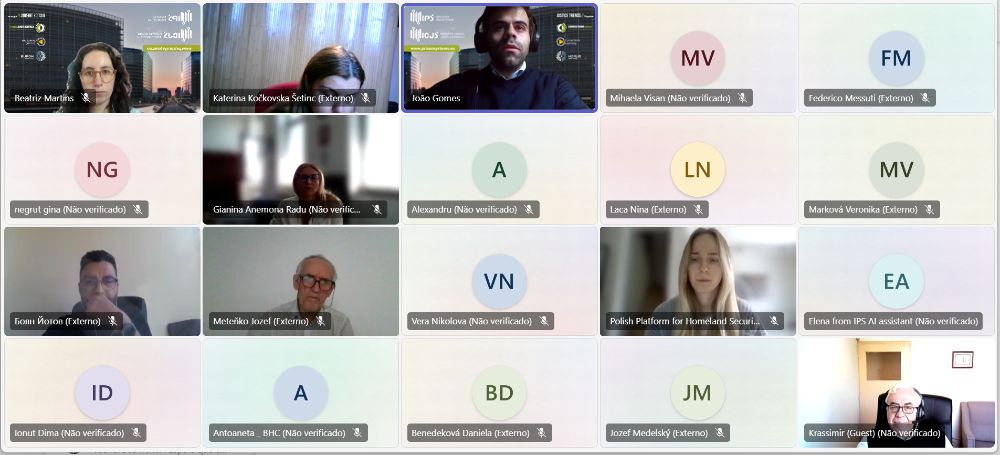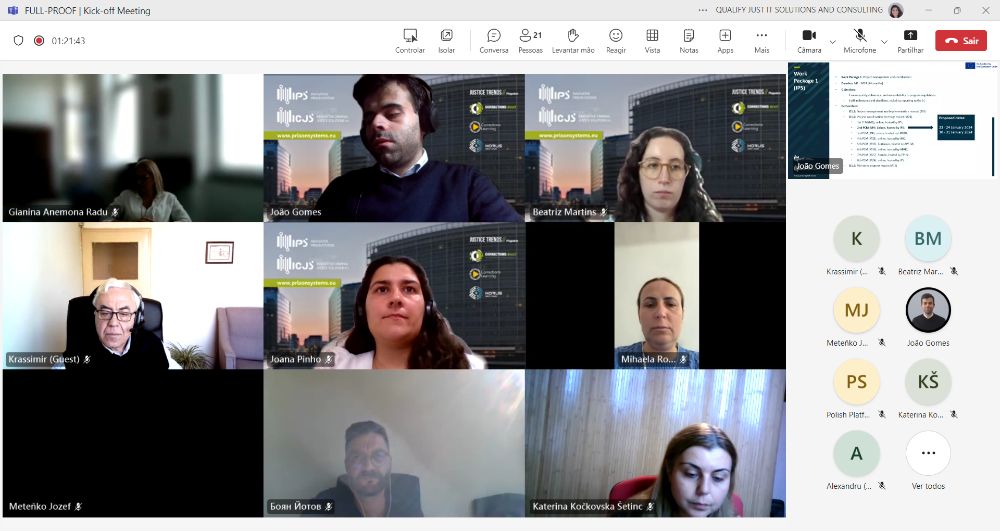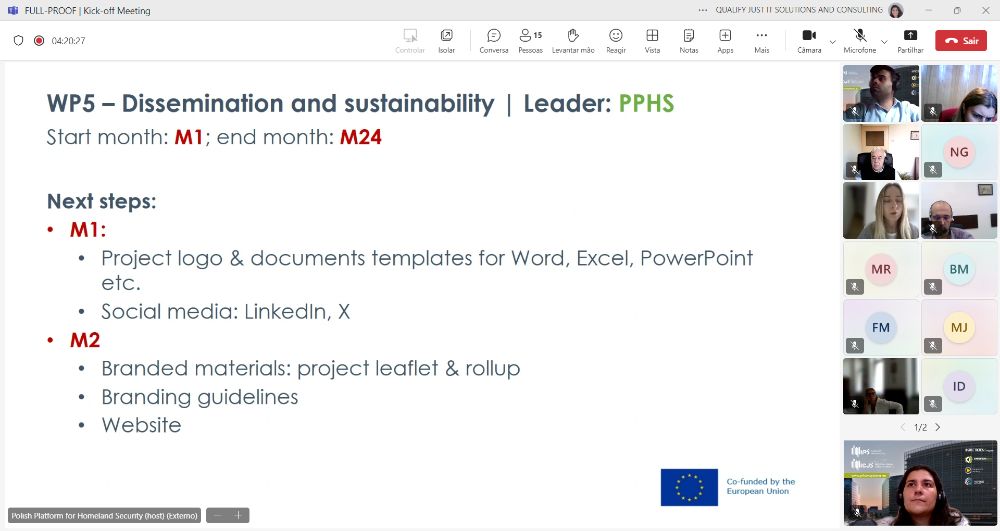IPS_Innovative Prison Systems leads a pivotal European initiative aimed at enhancing the respect for procedural rights in the initial stages of criminal proceedings across the EU.
Procedural rights are fundamental to the integrity and fairness of criminal justice systems, ensuring that suspects and the accused are treated justly. These rights, enshrined in EU legislation — such as Directive 2012/13/EU (right to information), Directive 2013/48/EU (access to legal counsel), and Directive 2016/1919/EU (right to legal aid) — serve as crucial safeguards against miscarriages of justice. However, despite the EU’s comprehensive legal frameworks, significant concerns have emerged about the inconsistent application of these rights across the 27 EU Member States, especially during the early stages of the criminal process, when suspects are most vulnerable.
In fact, a study conducted by the European Union Agency for Fundamental Rights (FRA) highlighted widespread challenges in the pre-trial criminal proceedings. Common issues across the partnership countries — Bulgaria, Poland, Italy, Romania, Slovenia, and Slovakia — include delays in access to legal aid, difficulties in comprehending pre-trial rights, and insufficient awareness among law enforcement and legal professionals about procedural safeguards.
Furthermore, vulnerable groups such as non-nationals and individuals from lower socio-economic backgrounds are disproportionately affected by language barriers and other obstacles that hinder their ability to access legal counsel or understand their rights. This problem spans the partnership countries, threatening the fairness and integrity of criminal justice systems.
Such inconsistencies not only endanger the fairness of criminal proceedings but also undermine public confidence in the justice system. Breaches during the pretrial phase — when suspects are most at risk of procedural violations — can lead to wrongful convictions, coerced confessions, and human rights abuses.
Addressing gaps in the implementation of procedural rights
FULL-PROOF “Ensuring the Due Course of Criminal Proceedings via Strengthened Respect for the Procedural Rights of the Suspect and the Accused” seeks to address these pressing challenges and promote further awareness and respect for the rights enshrined in Directive 2012/13/EU, Directive 2013/48/EU, and Directive 2016/1919/EU.
The project aims to bridge these gaps by developing and promoting common practices that ensure these rights are upheld uniformly across all Member States. A core objective of the project is to conduct a comprehensive cross-analysis of the most frequent breaches of procedural rights during criminal proceedings. This analysis will identify the root causes of these breaches and inform the development of targeted interventions that can be implemented by legal practitioners and law enforcement agencies to prevent future breaches.
By targeting areas where breaches most frequently occur, FULL-PROOF aims to protect individuals’ rights and foster greater public trust in the criminal justice system. Through a comprehensive strategy that includes the development of resources for legal practitioners and the organization of awareness-raising and experience exchanging events, the project seeks to ensure that procedural rights are upheld consistently across all Member States, ultimately enhancing the integrity and fairness of the criminal justice process.
Developing operational solutions and ensuring long-term impact
To achieve the aforementioned objectives, FULL-PROOF will create a range of practical resources designed to assist legal professionals and law enforcement officers. These products will include a Framework for the replicability of best practices, training materials, and practical tools such as guidance booklets, tailored to the needs of those working within the criminal justice system. The project will also deliver targeted workshops for Law Enforcement Agencies (LEAs) and lawyers, that focus on the importance of procedural rights and how to effectively uphold them in practice.
Additionally, the project will contribute to the update of the Legal Database and Advisory Tool from the CrossJustice platform, which provides legal professionals with reliable and accessible information on cross-border criminal justice procedures. This update will further enhance the capacity of legal professionals to navigate complex legal environments, ensuring compliance with EU procedural rights.
Moreover, the project is committed to ensuring that the improvements made during the project have a lasting impact on the criminal justice system. These mechanisms will ensure that they remain relevant and effective over time, adapting to the evolving needs of the justice system.
Engaging stakeholders through collaborative events




Over the span of 24 months, the consortium will host a series of key national and international events designed to enhance collaboration and knowledge sharing among justice professionals across the EU.
These events will include workshops and thematic roundtables that bring together experts to discuss challenges and share best practices related to procedural rights. In addition, FULL-PROOF will launch networking events that provide opportunities for stakeholders to connect, build partnerships, and strengthen their professional networks.
Learn more about this project

FULL-PROOF
Ensuring the due course of criminal proceedings via strengthened respect for the procedural rights of the suspect and the accused
FULL-PROOF is a project funded under the European Commission Justice Programme. This initiative is developed by a consortium led by IPS_Innovative Prison Systems (Portugal) and partnered by the Polish Platform for Homeland Security – PPHS (Poland), the University of Bologna (Italy), the Bulgarian Helsinki Committee Association (Bulgaria), the Police Academy “Alexandru Ioan Cuza” (Romania), The Peace Institute – Institute for Contemporary Social and Political Studies (Slovenia) and the Academy of the Police Force in Bratislava (Slovakia).
For further details, please refer to the project’s page.
Related projects

EUROProspects
Ensuring Probationers’ Rehabilitation Prospects via targeted enhancement of the implementation of FD 2008/947

EMPRO
Empowerment of the Framework Decisions 2008/947 and 2009/829 through EU Probation Services

J-CAP Next
Judicial cooperation for the enhancement of mutual recognition regarding probation measures and alternative sanctions – EPP software 3.0

SafeBorders
Strengthening Judicial expertise and Frontline support to combat Child Trafficking

FAIR PRESONS
Fair predictions of gender-sensitive recidivism

NO-OBLIVION
Promoting Universal Jurisdiction while Evoking the Crimes Committed within the Former Yugoslavia
Related news

New database supports judicial practitioners apply fairer pre-trial supervision in EU cross-border cases
Read More »




